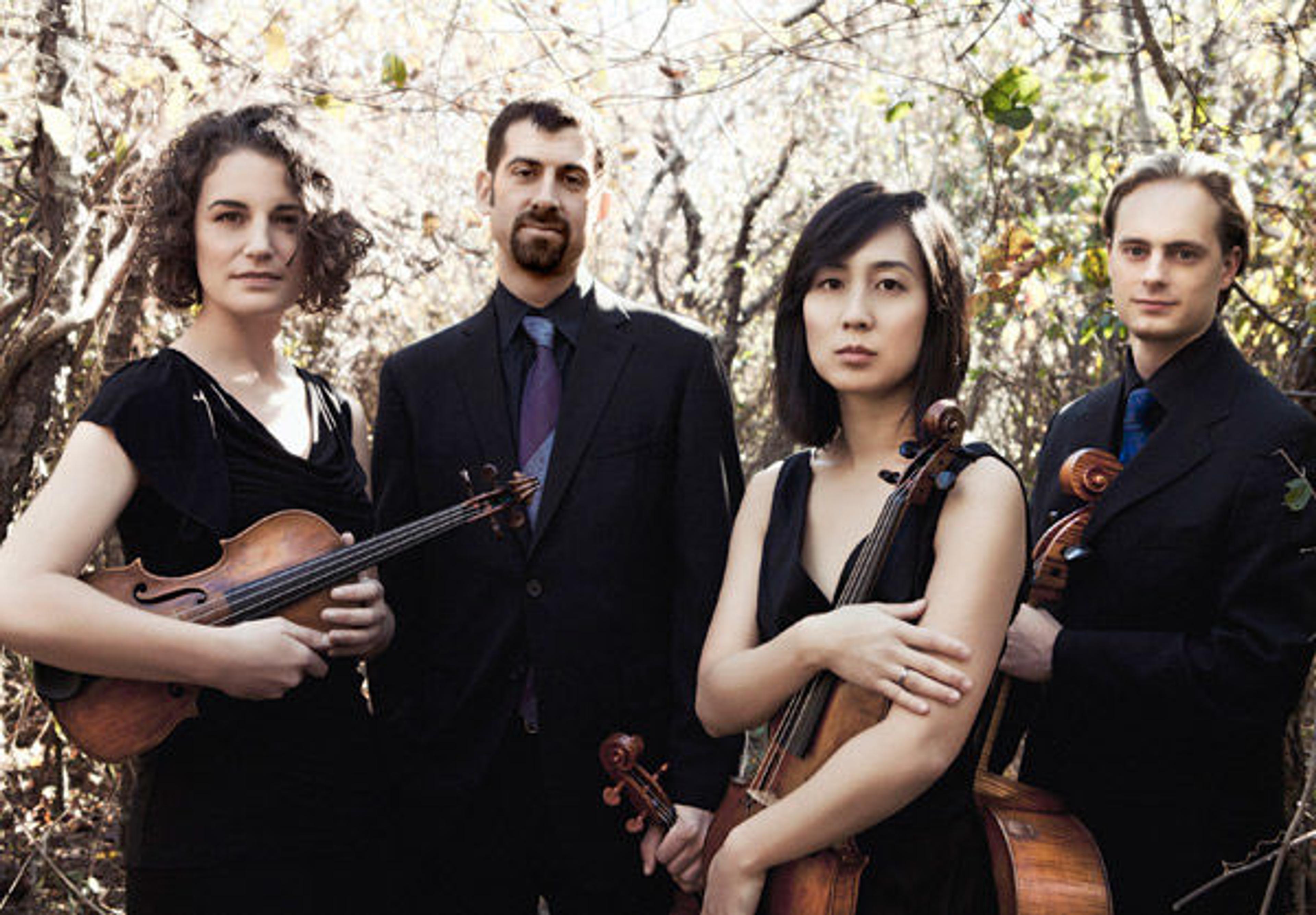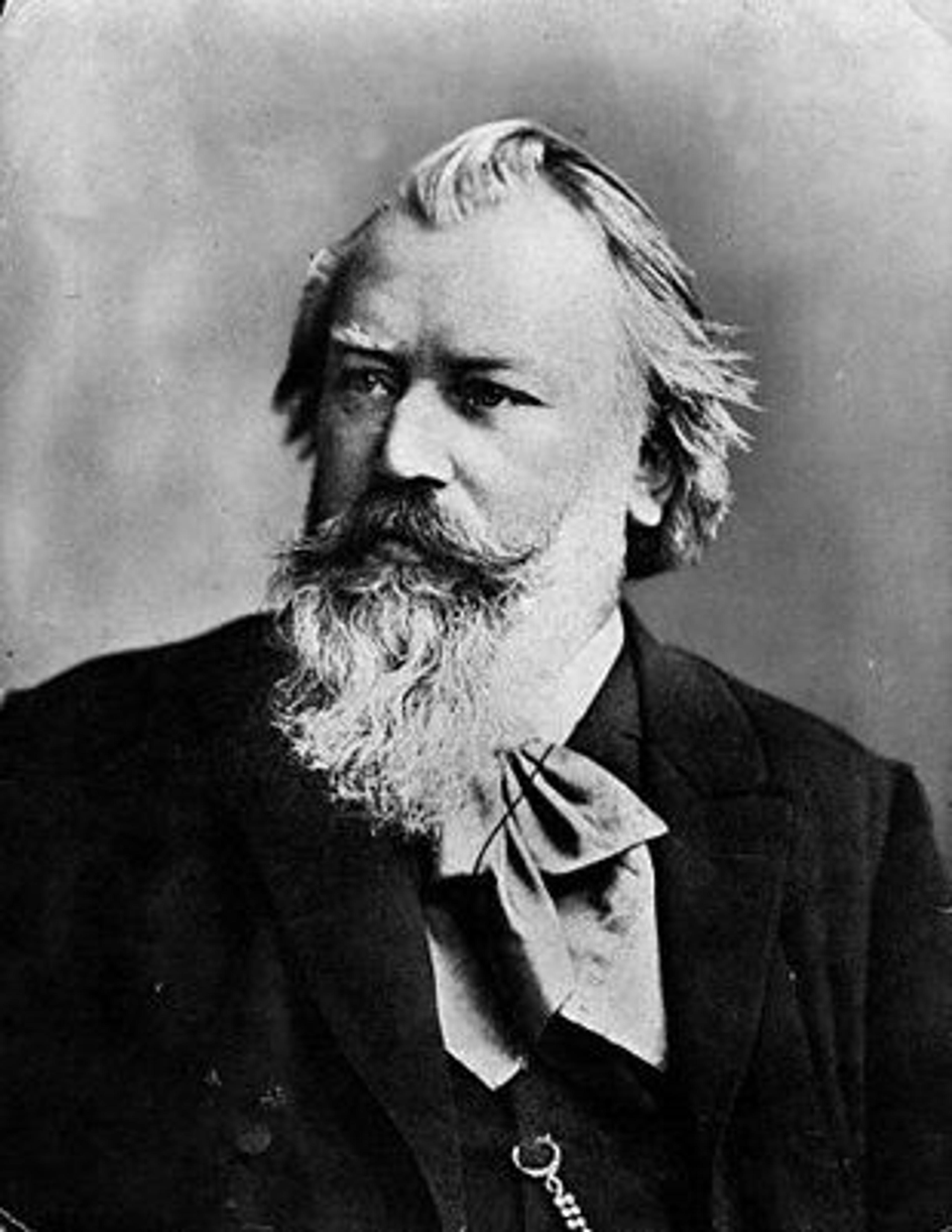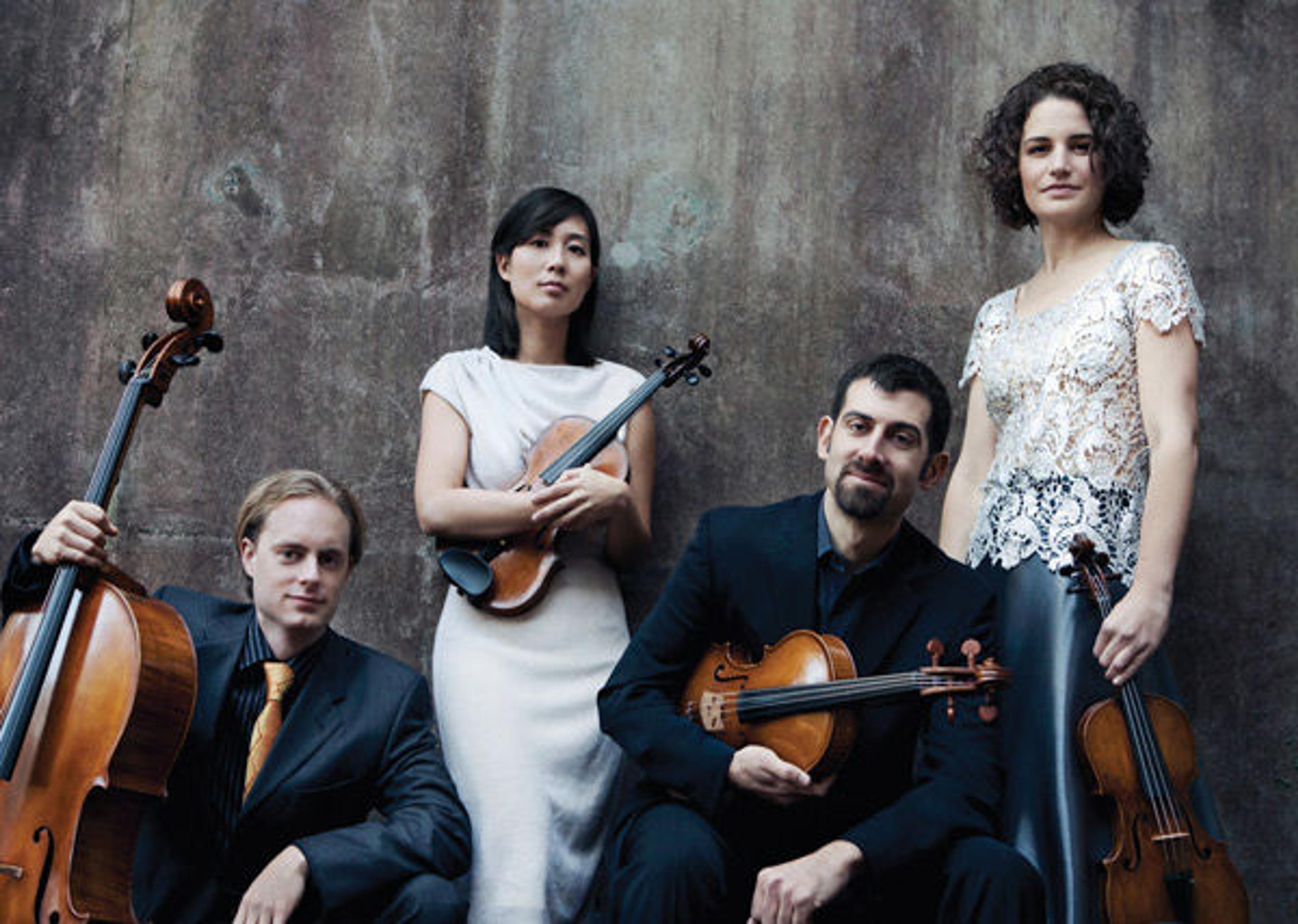
Chiara String Quartet. Photo by Lisa-Marie Mazzucco
«Aside from the symphony, perhaps no musical form has been explored more in-depth by composers than that of the string quartet. Originally brought to prominence during the Classical period by the "Father of the String Quartet," Franz Joseph Haydn, the form continued to be expanded upon throughout the nineteenth century by Romantic composers such as Franz Schubert, Ludwig van Beethoven, and Johannes Brahms. To kick off their yearlong series of concerts as the Met's 2015–16 Quartet in Residence, the Chiara String Quartet will perform all three of Brahms's quartets tonight in the Grace Rainey Rogers Auditorium. As evidenced by the title of the program, Brahms by Heart, Chiara will perform the works entirely from memory—a true feat of musical dexterity, the musician's equivalent of completing a high-wire act without a net.»
After Beethoven's death, in 1826, the string quartet form began to fall out of favor during the second half of the nineteenth century, which can be attributed to the rise in programmatic music (works based on imagery and story, rather than abstract music) as well as the fact that composers during this period felt the weight of trying to build upon the refinement Beethoven brought to the form over the course of his sixteen quartets. Among those composers who felt particularly haunted by the specter of Beethoven was Brahms (1833–1897), who eschewed the trend of programmatic, grandiose musical statements, choosing instead to look back to the harmonies and compositional structures used by Beethoven and Johann Sebastian Bach. In fact, Brahms was so self-critical of his abilities to match the symphonies and string quartets of Beethoven that he didn't publish his first statements in either form until he was well into his forties. (Interestingly enough, both his first quartet and first symphony were written in the key of C minor—the same key Beethoven chose for his warhorse fifth symphony.)
Left: Johannes Brahms. Public-domain image via Wikimedia Commons

Brahms destroyed some twenty string quartets over a period of roughly the same number of years before allowing his first two works in the form to be published in 1873—Op. 51, nos. 1 and 2. The catharsis of publication apparently gave the composer the confidence he needed to pursue another work, and Brahms published his third and final quartet, Op. 67, just three years later. From the terse, tragic strains of the first quartet through the sunnier, pastoral folk dances presented in the third quartet, Brahms brought his virtuosic sense of counterpoint and thick orchestral textures to the quartets, which each make incredible demands on the performers due to the wide variety of colors and stamina needed to create a convincing performance.
Now a regular presence in the string quartet canon, Brahms's three quartets are also credited with revitalizing interest in the form during the first half of the twentieth century, with composers such as Bela Bartók and Dmitri Shostakovich making particularly significant contributions, Bartók with six quartets and Shostakovich with a remarkable cycle of fifteen works. Even Arnold Schoenberg—the composer who pivoted composition away from the lush tonality of late Romanticism and into the serial-minded techniques of the early twentieth-century avant-garde—applauded Brahms's quartets for providing great advancements to the form, and Schoenberg ultimately wrote four quartets of his own across a thirty-one-year period.
In addition to tonight's performance of the Brahms cycle by the Chiara String Quartet, the group will return to the Met on November 13 to perform the same composer's Piano Quintet in F minor with pianist Simone Dinnerstein. Future concerts in their residency will also feature important quartets by Bartók (Quartet No. 4) as well as Schubert and Beethoven (Quartet No. 14, "Death and the Maiden," and Quartet No. 12, respectively).

Chiara String Quartet. Photo by Lisa-Marie Mazzucco
To purchase tickets to any of Chiara String Quartet's upcoming performances or any other Met Museum Presents event, visit www.metmuseum.org/tickets; call 212-570-3949; or stop by the Great Hall Box Office, open Monday–Saturday, 11:00 a.m.–3:30 p.m.
Related Links
Met Museum Presents Blog: "Obsession as Art: The String Quartets of Leoš Janáček" (February 3, 2015)
Of Note: "Happy Birthday to Papa Haydn, Father of the String Quartet" (March 31, 2014)